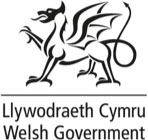
Statement from Cwmpas – Health and Social Care (Wales) Bill
For some time we’ve engaged with the Health and Social Care (Wales) Bill through its various stages of development, most recently in response to the Written Ministerial Statement in November last year and the disappointing news that Co-operative Societies will not be a permitted model within the legislation.
As the Bill goes through its final stages, we’re disappointed that no amendments have been tabled that could see Co-operative Societies included, as values-based, non-profit-driven, democratic bodies. Whilst we fully support the policy intention to stop the extraction of profit from children’s care, we remain firmly of the view that Co-operative Societies have a key role to play in the implementation of high quality, purpose led care that has children’s outcomes at the heart.
We’ll continue to promote the role they have to play alongside other social enterprise, non-profit driven, models that can support a safe transition that puts children’s outcomes at the heart. Alongside ADSS Cymru and WLGA, we’ll continue to engage with Welsh Government about the need for flexibility of models to support the transition of providers. The WLGA’s statement in response to earlier stage of the Bill’s passage sets out the very real challenges of this reform.
In particular, their comment on the need for the right range of models to support the policy aims whilst stabilising the transition:
“The timeline for making this change is also a big concern. Councils are already stretched, and we ask the Welsh Government to take on board the concerns from stakeholders about the speed of the transition along with the need to consider any further business models that might be available that would promote the principles of social enterprise whilst still being not-for-profit. The main focus has to be making sure that no child’s placement is destabilised as this policy is put in place.”
We’d be happy to discuss and work together with others who share these concerns.









